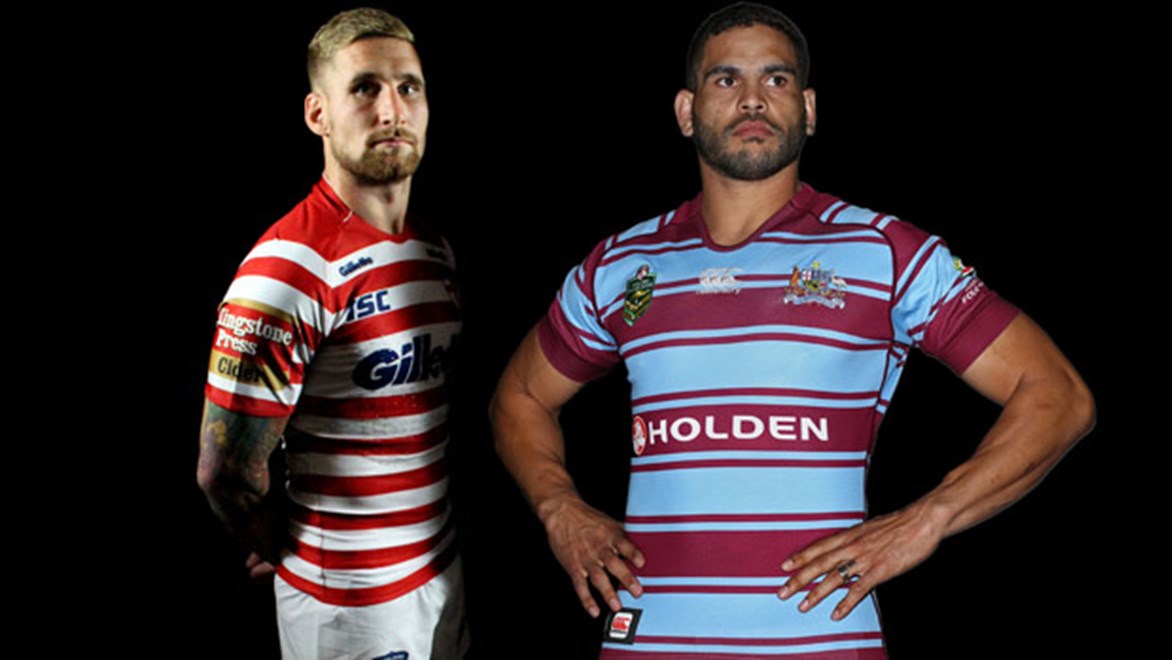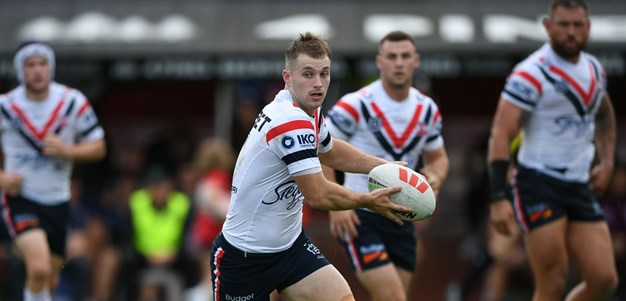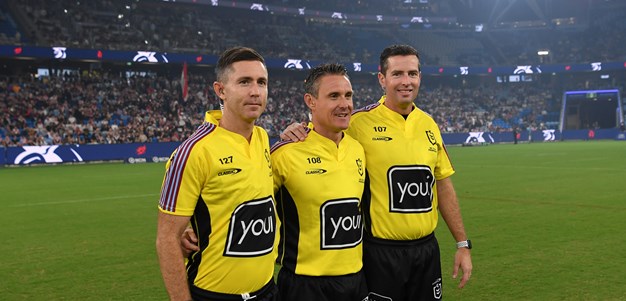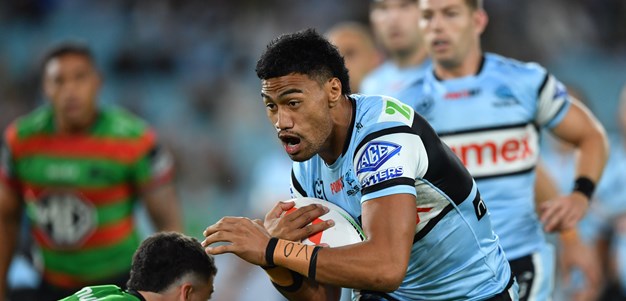

"You are playing in a game of football this afternoon, but more than that you are playing for England and more, even, you are playing for right versus wrong. You will win because you have to win. Don’t forget that message from home: England expects every man to do his duty."
So goes one of rugby league's most inspiring pre-match addresses from English manager John Clifford, given in the same Sydney Cricket Ground sheds that have housed names of Trumper, Churchill, Bradman and Catchpole over the years.
And so followed a story and match that would become known as the Rorke's Drift Test, named after the famed battle of 1879, when 139 British and South African soldiers held up to 4,000 Zulu warriors at bay for half a day amongst the burning ruins of their barracks.
In 1914 the British rugby league team, reduced to 10 fit men and playing their third match in eight days, held out a fit Australian side and triumphed 14-6 to reclaim the Ashes. On Sunday, their modern day counterparts will don the colours that they wore in their honour with their own slice of history ready to be written.
Thirty-five years had passed between the Rorke's Drift Battle on the red earth of Africa and the 90-minute game of football played on Sydney's most hallowed sporting turf, but no one accused the Daily Telegraph journalist known as 'Arawa' of employing those most favourite of circulation boosters; hyperbole and sensationalism, when he headlined his match report 'Rugby or Rorke's Drift?'
For the English tourists, who according to respected historian Tom Mather had left the Mother Country "unheralded... spent six weeks on a boat, and had 14 fit men to choose from as it was," this was right versus wrong.
A schedule that chopped and changed more times than a butcher's tripe left the English playing three Tests in the space of eight days. The first of those two Tests were played with 48 hours of each other, the visitors claiming the opener, the home side lifting to level in the second.
When the British rightly protested amid a raft of injuries to their already thin touring party and requested the decider be postponed, the New South Wales Rugby League went over their heads, issuing a telegram to the Northern Union. They had a clash of codes with the 15-man game, as well as a looming Aussie Rules tournament to consider.
Rugby league, then just six years young in the new nation, could not afford to let the match be played at a later date, lost amongst the higher profile sporting fixtures. And so the English cobbled together the fittest side they could and suited up.
And so ensued a match Ian Heads, a man who's seen a few in his time declares "the great underdog performance in big time sport and big time rugby league ever. If I could go back to see one game of rugby league, that's the one I'd want to see."
Steeled by the words of their manager Clifford, the Brits took on the odds, not to mention the Australians, and led 9-0 at half-time, despite having lost Halifax's Frank Williams with an injured knee and Douglas Clark, who soldiered on with a broken thumb but could not overcome a dislocated shoulder.
In the days of no substitutes, the English simply rolled up their sleeves, won the battle and in the process the hearts of the Australian crowd.
"Apparently the crowd's support switched during that second half, [with] many reports sighting that the Australian crowd was cheering the English team, which was remarkable. You wouldn't imagine it would happen these days," NRL Museum historian Terry Williams says.
One hundred years on, the current-day Australian and English sides will wear commemorative jerseys to mark the occasion, the Kangaroos in the sky blue and maroon jumper last seen in the Centenary Test in 2008, England in a red and white hooped design, complete with the names of the 1914 side proudly on their chests.
Both sides enter with odds of varying nature stacked against them; the Australians without up to 20 frontline players unavailable through injury and suspension and with their backs to the wall after being thoroughly outplayed by New Zealand last weekend.
Steve McNamara's men have the weight of history against them, having never won a Test against the Kangaroos on Australian soil under the English banner, and their last defeat of the Australians coming in the 1995 World Cup almost 20 years ago.
As is often the case when defying the odds, England's win a century ago came via a play from outside the box after losing Oldham's Billy Hall with concussion soon after the break. Forward Albert 'Chick' Johnson 'dribbled' the ball from "somewhere around halfway apparently, or his own side of halfway," Mather says. "Putting it on the ground and taking it on the toe with great skill and finishing up scoring the try that gave the break that England needed to go on and win the match."
The enormity of their triumph prompted co-manager Joe Houghton to cut a piece of the SCG turf from the ground and cart it back to England to present to the Northern Union. It also left a legacy that resonated immediately on both sides of the globe, captivating new audiences in both Australia and the Northern Hemisphere and helping to spread the gospel of rugby league in its earliest of years.
"It holds a tremendous legacy from the English point of view. Match reports took five or six weeks to arrive home, by which time war had been declared," Mather says.
"I think it was a great fillip for the north of England that the rugby league Test had been won when there were dark days ahead for the nation. It's just one of those games that I think stands out in the memory of people who love the game and will stand out in the minds of people who love the game forever more."
Mather gets his wish when the match is commemorated this Sunday. "Those that drink the water should thank the people who dug the well," he says.
For an English side with few better chances to get one up over their Antipodean foes, a win against the odds of history would be one hell of a way to do so.
The commemorative jerseys are available for purchase at NRLShop.com.
Buy Tickets for Australia v England at AAMI Park here.



